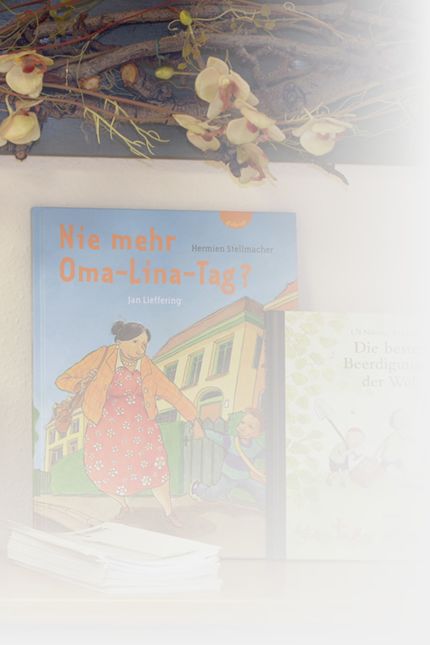
The idea that you can hide things from children is probably an illusion that not many people share any more. After all, children never miss a thing, and when it comes to the moods of grown-ups, they’re like little seismographs! More importantly, however, they are affected by a death just as much as anyone else – for instance when their beloved grandma is no longer with them.
Grief is as diverse in children as it is in adults. Some will be quiet and introspective, while others want an almost scientific understanding of what has happened. (“How long will it take for the worms to eat her up?”). Some are simply saddened to the core.
When a loved one dies, it’s important to take children seriously. They need clear answers to their questions – not just to keep their vivid imaginations in check but to help them come to terms with their loss. Some will want to talk a lot, others hardly at all. Some will want to get involved, others less so. What matters is that we give them exactly what they need. Forcing things on them is never a good idea. So when it comes to involving children in the funeral service, we can help you make sure it happens in a way that helps them. We have a wealth of experience and a wide range of brochures and books to help you. If you need assistance, please ask.
If you are facing a bereavement with young children, you may find the two-minute cartoon videos in the ‘Knietzsche explains’ (‘Knietzsche erklärt’) series helpful. Lovingly created, they are available in German only:
Das Sterben: Was kommt, das geht …
This video compares life with a rollercoaster ride. It describes the ups and downs we all experience and ends with the thought that when one living being dies, they create space for a new one.
This video explores death as a departure. Bidding someone farewell for the final time is painful. But with time, the pain subsides, and those who are no longer physically with us live on in our hearts instead.
Das Danach: Schluss, aus und vorbei?
Nobody knows what comes after death, although there are various possible beliefs. Knietzsche encourages us to choose our own vision for our life after death – but to enjoy what every day brings until we get there – age 100!